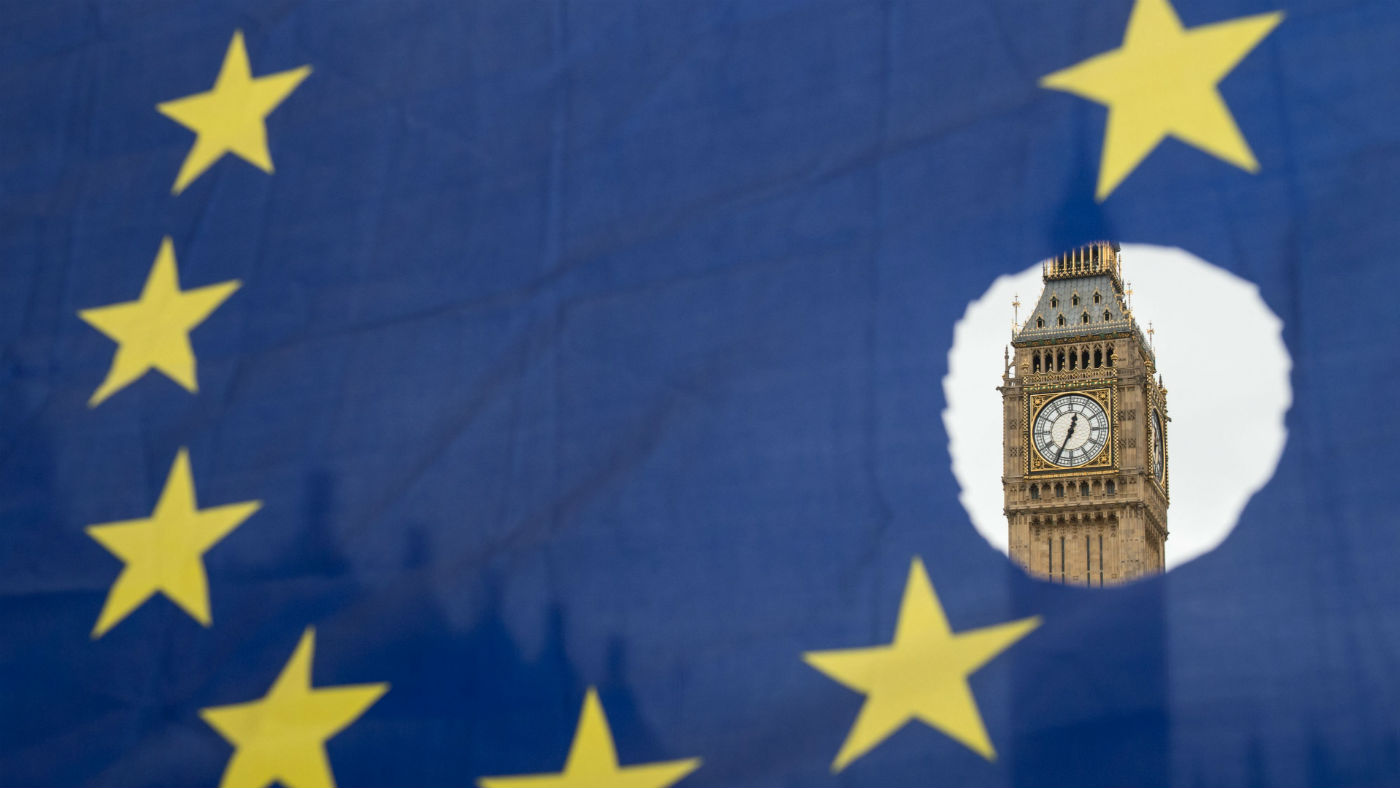‘Brexit begins’ – Britain to withdraw from EU meetings
Diplomats and civil servants will be told to focus on trading partners elsewhere

A free daily email with the biggest news stories of the day – and the best features from TheWeek.com
You are now subscribed
Your newsletter sign-up was successful
British officials will withdraw from most EU meetings from September, the Brexit secretary, Steve Barclay, has announced.
“Brexit begins,” cheered the Daily Express, as it was revealed that Britain will only send diplomats to EU meetings at which the UK has “a significant national interest in the outcome of discussions, such as on security”.
Instead, the diplomats and other civil servants will be asked to focus on building relationships with other trading partners around the world.
The Week
Escape your echo chamber. Get the facts behind the news, plus analysis from multiple perspectives.

Sign up for The Week's Free Newsletters
From our morning news briefing to a weekly Good News Newsletter, get the best of The Week delivered directly to your inbox.
From our morning news briefing to a weekly Good News Newsletter, get the best of The Week delivered directly to your inbox.
According to the Evening Standard, the move will “send a clear message that Britain is serious about quitting at the end of October”.
Barclay said: “An incredible amount of time and effort goes into EU meetings with attendance just the tip of the iceberg. Our diligent, world-class officials also spend many hours preparing for them whether in reading the necessary papers or working on briefings.
“From now on we will only go to the meetings that really matter, reducing attendance by over half and saving hundreds of hours. This will free up time for ministers and their officials to get on with preparing for our departure on October 31 and seizing the opportunities that lie ahead.”
The Guardian says the move is “likely to prompt concerns that British officials will be left in the dark about EU strategy” but with Brexit due in 72 days, many discussions in EU meetings will be about the future of the Union after the UK has left. Officials say this makes British participation irrelevant.
A free daily email with the biggest news stories of the day – and the best features from TheWeek.com
Indeed, government sources insist the decision is not intended to disrupt the functioning of the EU but simply to reflect the reality that the UK will depart soon.
A government spokesman said: “As a departing member state it makes sense to ‘unshackle’ officials from these EU meetings to enable them to better focus their talents on our immediate national priorities.”
However, one EU diplomat described the decision as “stupid”, saying: “There are rules that you could influence that will always have an impact on you whatever happens. I would participate in those meetings.”
The government will cede its vote to Finland, the current holder of the EU’s rotating presidency, according to a letter to EU diplomats from Boris Johnson’s EU envoy, David Frost.
The letter, published in The Guardian, says: “The UK government remains committed to the duty of sincere cooperation and will not stand in the way of the conduct of EU business during this time.
“We are very grateful to you as presidency for agreeing to exercise our vote, if necessary, at meetings which we do not attend.”
-
 Political cartoons for February 15
Political cartoons for February 15Cartoons Sunday's political cartoons include political ventriloquism, Europe in the middle, and more
-
 The broken water companies failing England and Wales
The broken water companies failing England and WalesExplainer With rising bills, deteriorating river health and a lack of investment, regulators face an uphill battle to stabilise the industry
-
 A thrilling foodie city in northern Japan
A thrilling foodie city in northern JapanThe Week Recommends The food scene here is ‘unspoilt’ and ‘fun’
-
 How corrupt is the UK?
How corrupt is the UK?The Explainer Decline in standards ‘risks becoming a defining feature of our political culture’ as Britain falls to lowest ever score on global index
-
 The high street: Britain’s next political battleground?
The high street: Britain’s next political battleground?In the Spotlight Mass closure of shops and influx of organised crime are fuelling voter anger, and offer an opening for Reform UK
-
 Biggest political break-ups and make-ups of 2025
Biggest political break-ups and make-ups of 2025The Explainer From Trump and Musk to the UK and the EU, Christmas wouldn’t be Christmas without a round-up of the year’s relationship drama
-
 ‘The menu’s other highlights smack of the surreal’
‘The menu’s other highlights smack of the surreal’Instant Opinion Opinion, comment and editorials of the day
-
 Is a Reform-Tory pact becoming more likely?
Is a Reform-Tory pact becoming more likely?Today’s Big Question Nigel Farage’s party is ahead in the polls but still falls well short of a Commons majority, while Conservatives are still losing MPs to Reform
-
 Taking the low road: why the SNP is still standing strong
Taking the low road: why the SNP is still standing strongTalking Point Party is on track for a fifth consecutive victory in May’s Holyrood election, despite controversies and plummeting support
-
 Is Britain turning into ‘Trump’s America’?
Is Britain turning into ‘Trump’s America’?Today’s Big Question Direction of UK politics reflects influence and funding from across the pond
-
 What difference will the 'historic' UK-Germany treaty make?
What difference will the 'historic' UK-Germany treaty make?Today's Big Question Europe's two biggest economies sign first treaty since WWII, underscoring 'triangle alliance' with France amid growing Russian threat and US distance